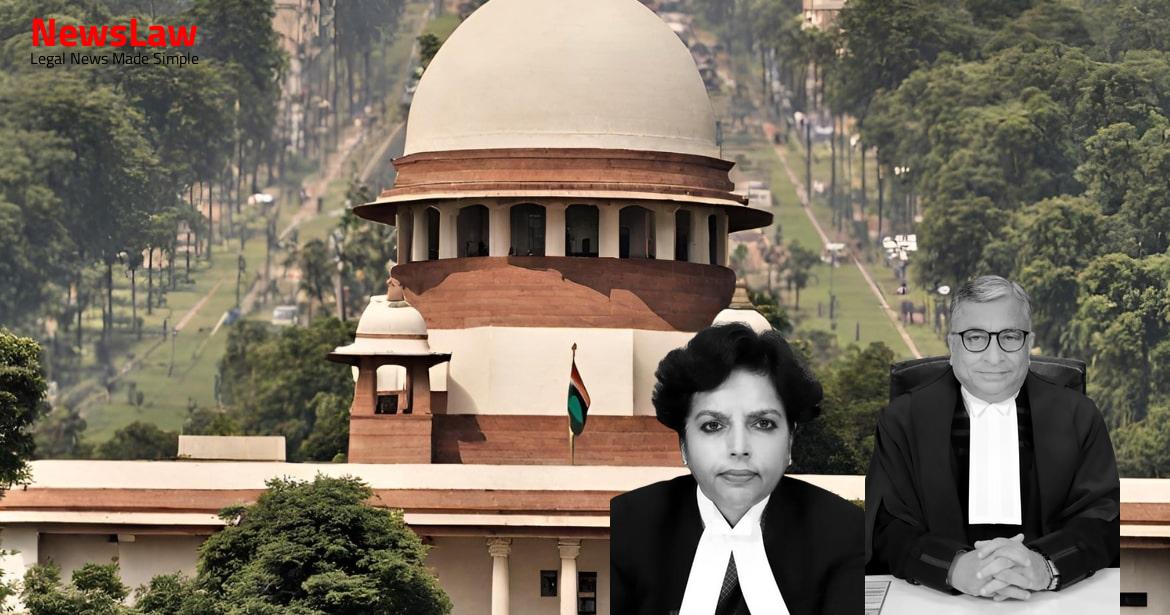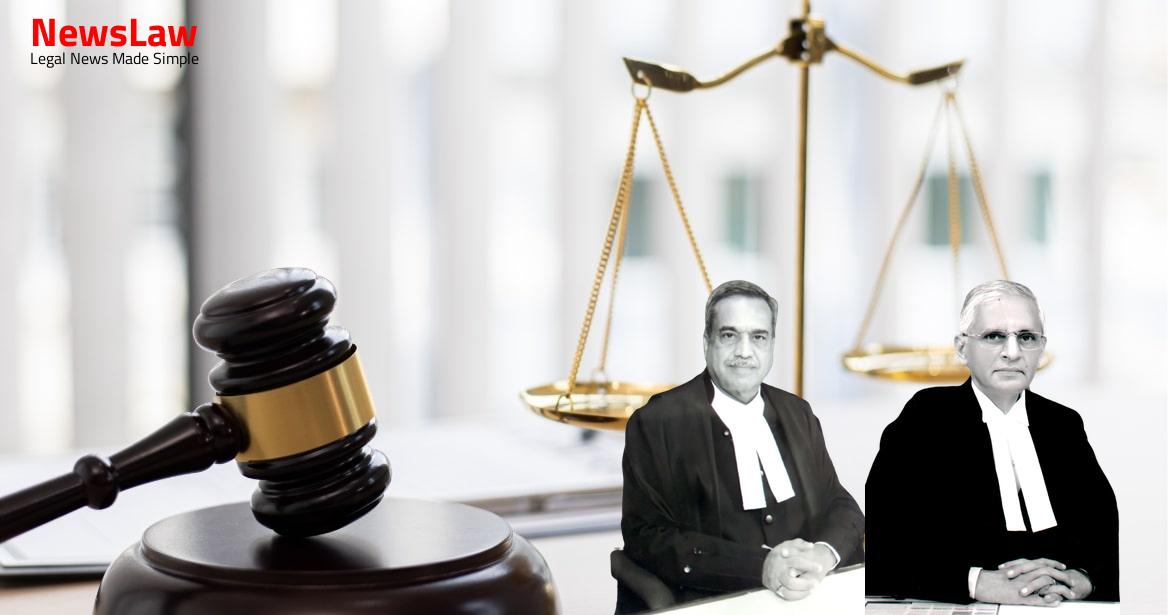In a recent legal case, the court conducted a detailed analysis of the coal block allotment issue, focusing on the adherence to proper legal procedures. This judgment highlights the importance of following due process in such allocations, as well as the consequences for parties involved. Let’s delve deeper into the court’s legal reasoning and the implications of its decision.
Facts
- The mining lease for the area in question was executed by the State Government in favor of the petitioner on 21 May, 1998.
- The Department of Mineral Resources sought prior approval for the grant of mining lease to the petitioner in 1995.
- Judgment in 2014 declared illegal allocations of coal blocks and canceled 42 coal blocks.
- Petitioner applied for permission to undertake coal mining on forest land in 1994.
- Petitioner applied for a mining lease in 1994 and submitted a mining plan for approval in 1995.
- Petitioner responded to Union of India’s letter in 1996 regarding coal block allocation.
- Central Government approved mining lease for the petitioner in 1997.
- Coal blocks allocated to the petitioner were mentioned in Annexure-1.
Also Read: Time as Essence of Contract in Sale Agreement: Legal Analysis
Arguments
- Learned counsel for the petitioner argues that the issue remaining for consideration is the liability of the petitioner to pay compensation for coal extracted as an additional levy demanded by the respondent No.1.
- The petitioner’s counsel contends that the petitioner was erroneously included in the list of 46 coal block allottees and its mining lease area in the Schedule of the Ordinance, resulting in the cancellation of its valid lease.
- The inclusion of petitioner’s name in Annexure-1 filed by respondent No. 1 before the Court at serial No. 22 and 23 has also led to the quashing of the lease granted to the petitioner.
- The respondent No. 1 – Union of India argues that the additional levy imposed on beneficiaries of illegal coal allocation, including the petitioner, is a penalty and compensation for the loss to the public exchequer.
- The allocation of coal blocks to the petitioner was identified by the Screening Committee and deemed illegal by the Court.
- The petitioner failed to pay the additional levy amounts in two phases, as directed by the judgments.
- The respondent states that all affected parties were given a hearing before the judgments were passed, including the petitioner.
Also Read: Retirement Age of PTI/Sports Officer in University
Analysis
- The Court found that the allocation of the coal block to the petitioner was not illegal as the proper procedure was followed.
- The State Government affirmed that the petitioner’s case was not part of the flawed allocation process like other cases.
- The petitioner had submitted all required documents and followed the legal process before investing in the business.
- The conduct of the UOI was criticized for not following the law correctly.
- The UOI included the petitioner’s name in Annexure-1 unlawfully, leading to consequences for the petitioner.
- The petitioner did not apply directly to the UOI but followed the proper channel through the State Government for the mining lease.
- The mining lease granted to the petitioner was not tainted by mala fides unlike other allottees.
- The State Government diligently examined the petitioner’s application before recommending it for the mining lease.
- The petitioner’s case was independent of the flawed allocation process and was based on proper consideration by the State Government.
- The UOI’s affidavit wrongly implicated the petitioner, who was not allocated the coal block through the flawed routes like other mine owners.
- Respondent No 1 is not entitled to claim payment of an additional levy for coal extracted by the petitioner.
- UOI did not conduct necessary due diligence to confirm petitioner’s mine allocation through lawful procedure.
- Petitioner was not a beneficiary of the flawed process, so penalties as compensatory payment do not apply.
Decision
- Contempt Petition (Crl.) No.7 of 2016 is dismissed as meritless.
- Litigation costs of ₹ 1,00,000/- to be paid by respondent No.1 – UOI to the petitioner within four weeks.
- The writ petition is allowed on the stated terms.
- Any demand raised by respondent No 1 – UOI is quashed and set aside.
Case Title: B.L.A INDUSTRIES PVT. LTD. Vs. UNION OF INDIA (2022 INSC 838)
Case Number: W.P.(C) No.-000063-000063 / 2015



